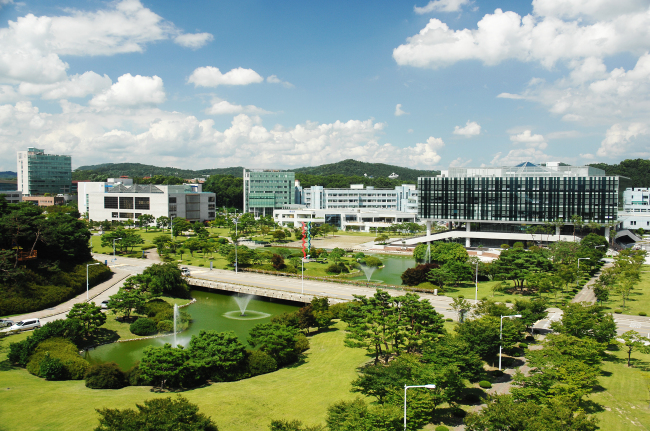KAIST, South Korea’s top science and technology university, on Thursday rebutted claims that it was contributing to the development of artificial intelligence-powered killer robots, which had prompted over 50 of the world’s top AI researchers to announce a boycott of KAIST.
“I am saddened to hear about the announcement on the boycott of KAIST for allegedly developing killer robots,” KAIST President Shin Sung-chul said in a public statement.
“I would like to reaffirm that KAIST does not have any intention to engage in development of lethal autonomous weapons system and killer robots. KAIST is significantly aware of ethical concerns in the application of all technologies including artificial intelligence.”
 |
KAIST`s main campus in Daejeon, South Korea (KAIST) |
KAIST’s statement comes a day after more than 50 leading AI and robotics experts from 30 countries announced a boycott of KAIST, after the university opened what they claimed was an AI weapons lab with Hanwha Systems, one of Korea’s top two makers of cluster munitions.
The KAIST president explained that the research center at KAIST, which was opened in collaboration with Hanwha Systems, does not intend to develop any lethal autonomous weapons systems and that the research actions do not target individual attacks.
Rather, the center aims to develop algorithms on efficient logistical systems, unmanned navigation and aviation training systems. KAIST will be responsible for educating researchers and providing consultation.
“As an academic institution, we value human rights and ethical standards to a very high degree. KAIST has strived to conduct research for better serving the world,” Shin said.
The boycott against KAIST was organized by professor Toby Walsh from the University of South Wales, ahead of a United Nations meeting in Geneva on April 9 aimed at discussing the challenges of lethal autonomous weapons.
The researchers included in the boycott had sent KAIST a letter saying that they would sever ties with the Korean university until it provides reassurances that the weaponry it develops will have “meaningful human control.”
“At a time when the United Nations is discussing how to contain the threat posed to international security by autonomous weapons, it is regrettable that a prestigious institution like KAIST looks to accelerate the arms race to develop such weapons,” the letter reads.
“We can see prototypes of autonomous weapons under development today by many nations including the US, China, Russia, and the UK. We are locked into an arms race that no one wants to happen. KAIST’s actions will only accelerate this arms race. We cannot tolerate this.”
KAIST said that it has informed the members of the boycott of its formal stance on the issue via email, and that it had received responses from some who have thanked the university for clarifying the allegations.
By Sohn Ji-young (
jys@heraldcorp.com)








